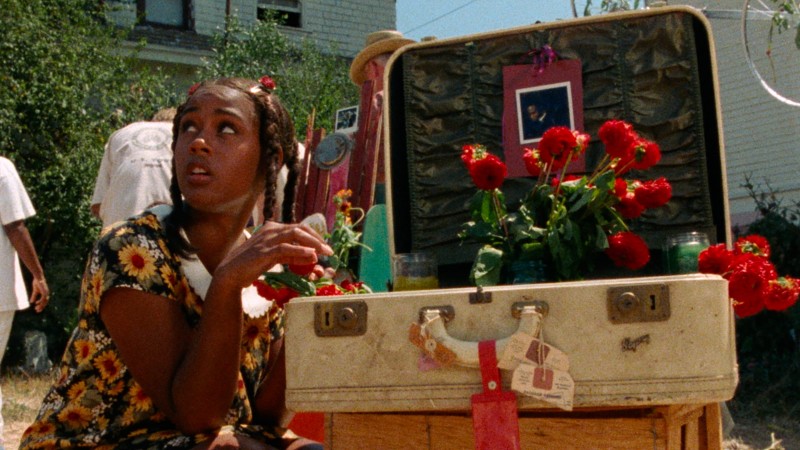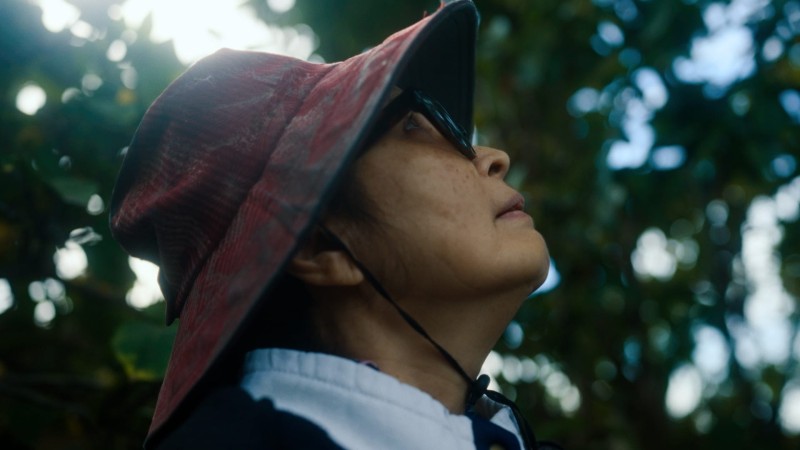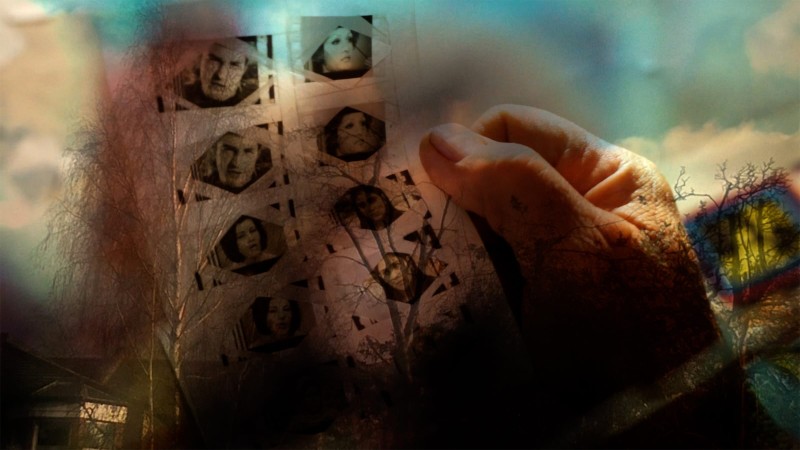Method Scoring: An Interview with Clint Mansell

Musician and composer Clint Mansell has spent the past two decades creating some of the most unique and indelible film scores in modern memory. After beginning his music career as the frontman for the band Pop Will Eat Itself, the English-born musician got his start in film by collaborating with director Darren Aronofsky, building the affecting sonic worlds of Pi (1998) and Requiem for a Dream (2000). He’s since gone on to score all of Aronofsky’s subsequent films, in addition to working with directors like Park Chan-wook, Barbet Schroeder, and Ben Wheatley (whose J. G. Ballard adaptation High-Rise, featuring a score by Mansell, opens next week), enlivening the films he works on with his characteristically refined yet visceral musical sensibility. Recently, I spoke with the composer about his instinctive approach to composition and the value of a total immersion into a film’s world.
Your scores always become so deeply engrained in the movies they accompany that it becomes impossible to imagine these films without the music you create. How do you start the process of finding that musical entryway into the psychological and emotional realm of the characters?
It’s a lot of work, really. I don’t like a lot of film music because I don’t think it does enough of a job half the time—it’s just wallpaper. But then you talk about Indiana Jones, and you remove the score from that film and all you’ve got left is Harrison Ford making some strange faces; the score does everything in that film, it just adds what’s required. Not every score should contribute in that way, but we have an industry now where I’ve had producers say to me, “Can you make it more neutral?” You often get this, “Oh, the best film scores are the ones you don’t notice.” Yeah, some scores are like that, but there’s not only one way to score a film, and that’s what has always driven me. When I first met Darren Aronofsky, one of the first things we agreed about was the fact that we didn’t like film music because it was rubbish and wallpaper and just sits there a lot of the time.
My manager describes me as a method composer because I like to do a lot of research into what I’m doing. I don’t know how much that helps, but it gets me in a mind-set and I get to understand the film. If I spend enough time with the film and explore it and listen to what it’s saying to me about the music I’m presenting to it, it will guide me where it needs to go. This is very pretentious, but I sort of feel like when a sculptor says, “The statue is already in the stone—I’ve just got to get it out.” I feel like it’s there if I just listen to it. I sort of subscribe to the Alan Moore theory that artists are magicians, because they create something where there was once nothing. What that means for me is that I choose films that make me think there’s something in me that I can bring out. That isn’t necessarily every film ever made; I believe very much in inspiration, I don’t believe that I can just do any film. I can put music on any film but that doesn’t make it good. So I look for the films that warrant the sort of work I want to do. I want to be involved with something that means something.
And are there particular elements that you look for in the projects you work on?
My life experiences have altered me, as one’s life experiences do, and at one time I would sort of do any film that anyone would ask me to do, because I wanted to learn and understand what I could and couldn’t do. At one time I would have been grateful just to have a job, and to some degree I still am, but I’m also aware of the fact that I’m going to bring something. I guess it just comes down to self-respect to some degree. The music of the film is the last thing to be done and a lot of time registers as the least important, because by the time you get to the music, they’ve used half the budget and music becomes very secondary, even though it’s one of the principle things you can do to really help a film in the edit stages. You look at films like Jaws or Halloween and see what the music did for them. But I also feel like composers are like Marlon Brando in On the Waterfront down by the docks begging for jobs, and if you don’t get it somebody will trample over you to get it, because there’s always somebody who’s prepared to stay up until six in the morning. Which is great and fine, but I just don’t think that’s the way magic happens. I’m more interested in finding stuff out and creating a great moment we never would have thought of. What I do is based on creativity and inspiration, and I’ve got to work on the films that bring that to me.
It sounds like maybe you enjoy the research aspect of getting to immerse yourself in these diverse new worlds as much as the actual composing?
I like it even more, to be honest, sitting around reading all day, or watching documentaries, or just learning. Being around the film for a long time sort of means that everything you do and hear and see gets filtered through that after a while, so anything can have an influence on it. It’s probably not the healthiest of states sometimes, because when it’s not going well I’m miserable, but when it is going well I’m ludicrously happy.
As you started working on High-Rise, how did you go about constructing the film’s sonic universe? Did you read the novel and try to mentally compose the right soundtrack for it?
I did English literature in college, and Ballard back then was at the height of his powers, and he was a very relevant, contemporary author, so I read him then. I've always been a fan of his, and I also loved Ben’s work, so this opportunity of coming together to work with Ben on High-Rise by Ballard was just fantastic. I've done like forty years of preparation.
What were some of the things you and Ben talked about for creating the score?
One of the touchstones was David Cronenberg’s Shivers. I think both Ben and I would have loved to have gone down a Howard Shore-slash-John Carpenter approach to film and be complete fanboys about it, but we realized things were going to get dark pretty quickly in the film and we needed to offset that. Ben had put the Bach pieces in a couple of places in the film, which gave this sort of faux-pomposity of these people believing they’re better than everybody else. So we were trying to sort of play on the grandioseness of everybody—stuffed shirts, as we’d call them in England—but then we’d start to peel back the layers. It’s a fertile world, so you can start diving into things as you get more and more into it. I’ve been scoring movies for nearly twenty years now, and I guess you’re always looking to push yourself, you want to be excited by things; so part of getting excited, for me, is finding new ways of doing things or doing things I haven’t particularly done before.

I grew up watching movies; my dad was a huge movie fan. Even back in the ’70s and ’80s, we only had three or four channels on TV in England, but a lot of films showed on TV. I saw films like Klute or The Parallax View or Don’t Look Now or Walkabout, things like this on the BBC in the ’70s, which were really great films to see when you’re twelve or thirteen. They all had effects on me—not just musically, but intellectually—and on what I was looking for from films. But it was probably something like John Carpenter’s Assault on Precinct 13 that really made me feel . . . it just didn’t feel like your parents’ or your grandparents’ movie score—it was something new and, at least to me, different. And it seemed more accessible to my music skills, or lack thereof shall we say, rather than Indiana Jones or something that’s a fully orchestral score and dizzyingly complex when you’re fifteen or twenty.
What’s something that you’ve heard, seen, or read lately that’s inspired you?
The past eighteen months have been a difficult time for me. My girlfriend died in October 2014, and so everything has been uninspiring, you could say or, you know, my mental place hasn’t been picking up on things. So things during that period that have inspired me are, I guess, things that I might not have been drawn towards otherwise. I really loved David Lynch’s book Catching the Big Fish and Julian Barnes’s Levels of Life, which is about his wife dying, and it was the best thing I’ve read on how little we know about what the hell we’re going through at those times. It was a really, really powerful read.
But also in that time Ben came to me with High-Rise, and I was just about to start the film when Heather died, and I had to drop out of working on it because I just didn’t think I could do it. But about a month later I was in England and got together with Ben just to talk about possibly doing something in the future, and in the course of it, he said to me, “What if we could wait for you, take a couple of months, even though they were under a huge time constraint.” And that was a beautiful thing; I think that was the most inspiring thing that’s probably ever happened to me, that somebody would show you that level of compassion and give you time and space to deal with the important things in life before coming back and helping on these things that we also find important. That, to me, was probably one of the most special moments in my life, that somebody could do that and particularly in the less-than-compassionate world of Hollywood filmmaking. I think that sort of changes you and what you aspire to next and where it can lead to.





